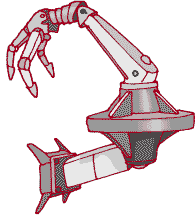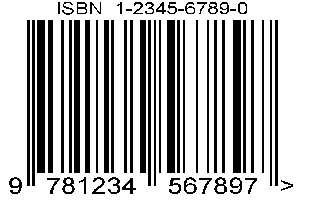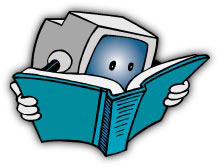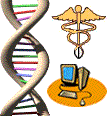| During
this unit we will … 1. …
discuss different possibilities of computer application |
|
| By the end of this
unit, you should … 1. … be
able to demonstrate the knowledge of new vocabulary connected with the
use of computers
|
cir•cuit•ry /'sə:kitri/ noun 1. circuit components: the components of an electric circuit 2. electrical system: the system of circuits in an electrical or electronic device 3. electric circuit's layout: the design or layout of an electric circuit |
|
encode
|
|
USES OF COMPUTERS
People use computers in a wide variety of ways. In business, computers track inventories with bar codes and scanners, check the credit status of customers, and transfer funds electronically. In homes, tiny computers embedded in the electronic circuitry of most appliances control the indoor temperature, operate home security systems, tell the time, and turn videocassette recorders on and off. Computers in automobiles regulate the flow of fuel, thereby increasing gas mileage. Computers also entertain, creating digitized sound on stereo systems or computer-animated features from a digitally encoded laser disc. Computer programs, or applications, exist to aid every level of education, from programs that teach simple addition or sentence construction to programs that teach advanced calculus. Educators use computers to track grades and prepare notes; with computer-controlled projection units, they can add graphics, sound, and animation to their lectures (see Computer-Aided Instruction). Computers are used extensively in scientific research to solve mathematical problems, display complicated data, or model systems that are too costly or impractical to build, such as testing the air flow around the next generation of space shuttles. The military employs computers in sophisticated communications to encode and unscramble messages, and to keep track of personnel and supplies.
"Computer." Microsoft® Encarta® Online Encyclopedia 2000
| APPLICATION, in computer science, a computer program designed to help people perform a certain type of work. |
|
 |
3 Underline words that go with the words you have highlighted in 1, e.g. use (What?) → computers.
4 Read the text again and highlight with a different colour all the places / situations in which computers are used. Some of them are stated some are only implied.




